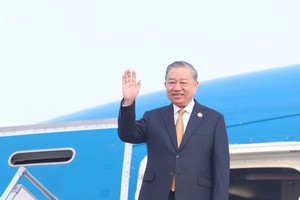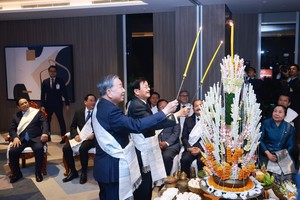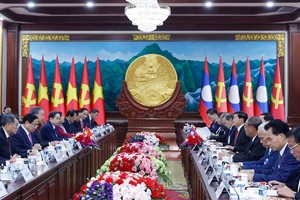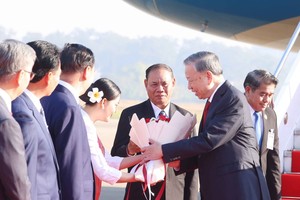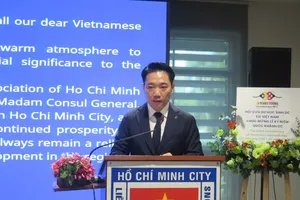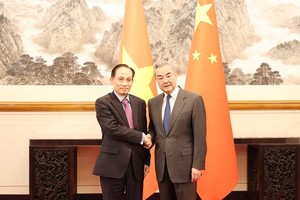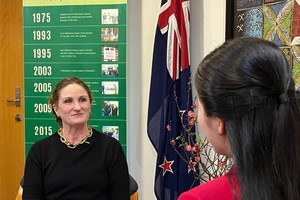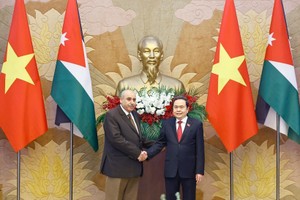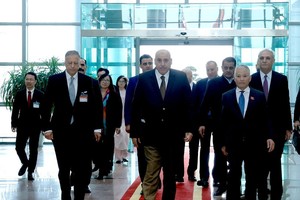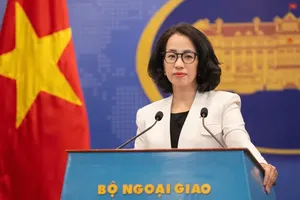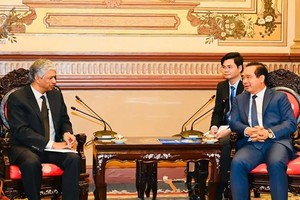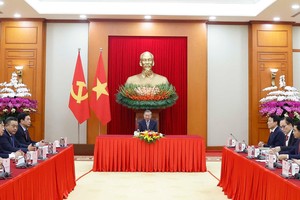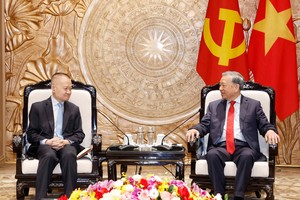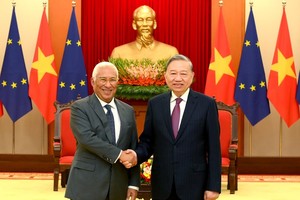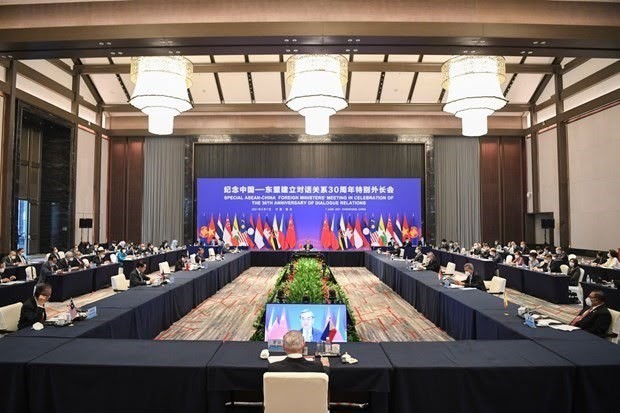
ASEAN and China should step up dialogues, continue to build trust, promote mutually beneficial and equal cooperation, respect each other and observe international law, in order to ensure an environment of peace, security and stability and facilitate the handling of existing and emerging challenges, the ambassador noted.
ASEAN will continue its close coordination with China to fully and effectively implement the Declaration on the Conduct of Parties in the East Sea (DOC), and strive to build a substantive, effective and efficient Code of Conduct (COC) in the East Sea in line with international law, including the 1982 United Nations Convention on the Law of the Sea (1982 UNCLOS), for the East Sea of peace, cooperation and development, he affirmed.
Ho also called on the two sides to effectively fulfill their cooperation commitments through the sharing of experience and information and coordination between law enforcement forces, while working together to spur sub-regional development, ensure inclusive growth and equal, sustainable development.
ASEAN and China upgraded their relationship to the Comprehensive Strategic Partnership at a special summit last year. The two sides have remained leading trade partners of each other.
The Chinese side stressed that ASEAN is priority in China’s foreign policy, adding that China supports the bloc’s centrality in the evolving regional architecture and pledges to help ASEAN builds its community and promote its role, image and voice in regional and international forums.
The two sides agreed to prioritise coordination in Covid-19 prevention and control, including the improvement of preventive health care and the implementation of China’s aid package of 150 million doses of vaccines to ASEAN.
The countries will soon reopen their borders, resume economic, trade and investment exchanges, stabilise the supply chain and create optimal conditions for businesses to access markets.
They will coordinate to effectively materialise the ASEAN-China Free Trade Agreement and the Regional Comprehensive Economic Partnership (RCEP).
The sides consented to enhance and expand collaboration in innovation and digital transformation to speed up recovery and growth, and pay more heed to cooperation in climate change response, energy transition, and green, sustainable development.
ASEAN lauded China’s cooperation proposals in poverty reduction, personnel development, food security, clean energy and sustainable development.
Regarding regional and international issues of shared concern, the countries emphasised the significance of peace, security and stability in the region, considering this a prerequisite for recovery and development efforts.
They backed efforts to fully and effectively implement the DOC and build a substantive, efficient and effective COC in accordance with international law and the 1982 UNCLOS.
They affirmed support for ASEAN’s role in helping Myanmar promote dialogues and reconciliation, and seek solutions to stabilise the situation.




